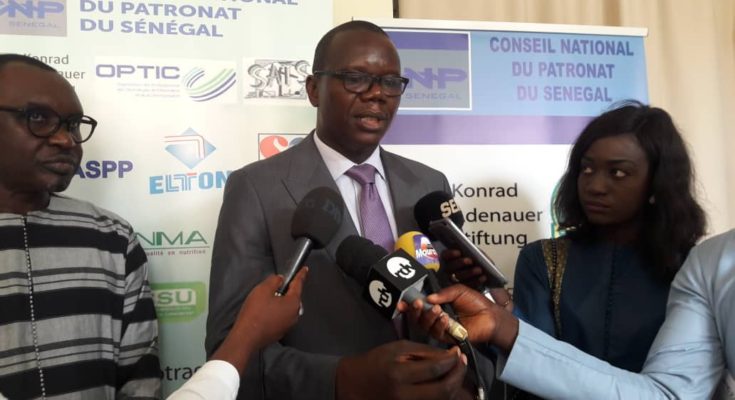
[ad_1]
The President of the Organization of Information and Communication Technology Professionals (OPTIC), Antoine Ngom pleaded for the establishment, as soon as possible, of the interdepartmental steering committee and monitoring of the Senegal Digital Strategy 2025 (SN 2025)
" Studies are launched within the framework of the implementation of the strategy without any real visibility on the part of the actors. These actions are undertaken in a dispersed and uncoordinated way ", Ngom first deplored, speaking at a press conference organized by his institution.
In the opinion of President of OPTIC, Senegal must break with the past where several guidance documents are drawn up without any implementation because of the lack of steering and monitoring instruments.
Speaking of the FCFA 1 billion fund for start-ups, he said that this fund can be revised upwards, given all that generates the sector, to have much more impact and for it to be thus enlarged to digital companies that no longer correspond to the "category of start-up".
Because these companies have significant financing needs for their innovative projects, Antoine Ngom advocates the establishment of a " Digital Innovation act ", as opposed to startup act "which is more restrictive, but also the access to the public order which constitutes" a true lever of diffusion of our solutions ".
For him, this should pass by the mutualisation of the infrastructures and the outsourcing, in making the infrastructure of the ADIE mainly by the private sector and make by the latter the design and implementation of solutions and services for the State of Senegal.
Moreover, he lamented the non-involvement, for the moment, the national private sector on the huge project "Smart Senegal", whose funding "very important" would come, according to him, from China. The aim of the Smart Senegal project is to disseminate information and communication technologies in the national economy.
In addition, the president of OPTIC underlined the difficulties facing access providers to Internet services (FAI), including the cost of frequencies which "remains ten times more expensive than in the entire sub-region" as well as high interconnection and collocation prices, making operational costs prohibitive.
the new 5 per cent special telecommunications levy (CST), which would replace all levies in the telecommunications sector, Mr. Ngom informed that this tax, being a tax, will be paid directly to the State Treasury, and may be destined for any other activity unrelated to the digital sector.
This is why, he says, "Our point on the question remains the same, it is necessary that the funds collected in our sector come mostly back to the sector. "
with APA NEWS
Comments


[ad_2]
Source link